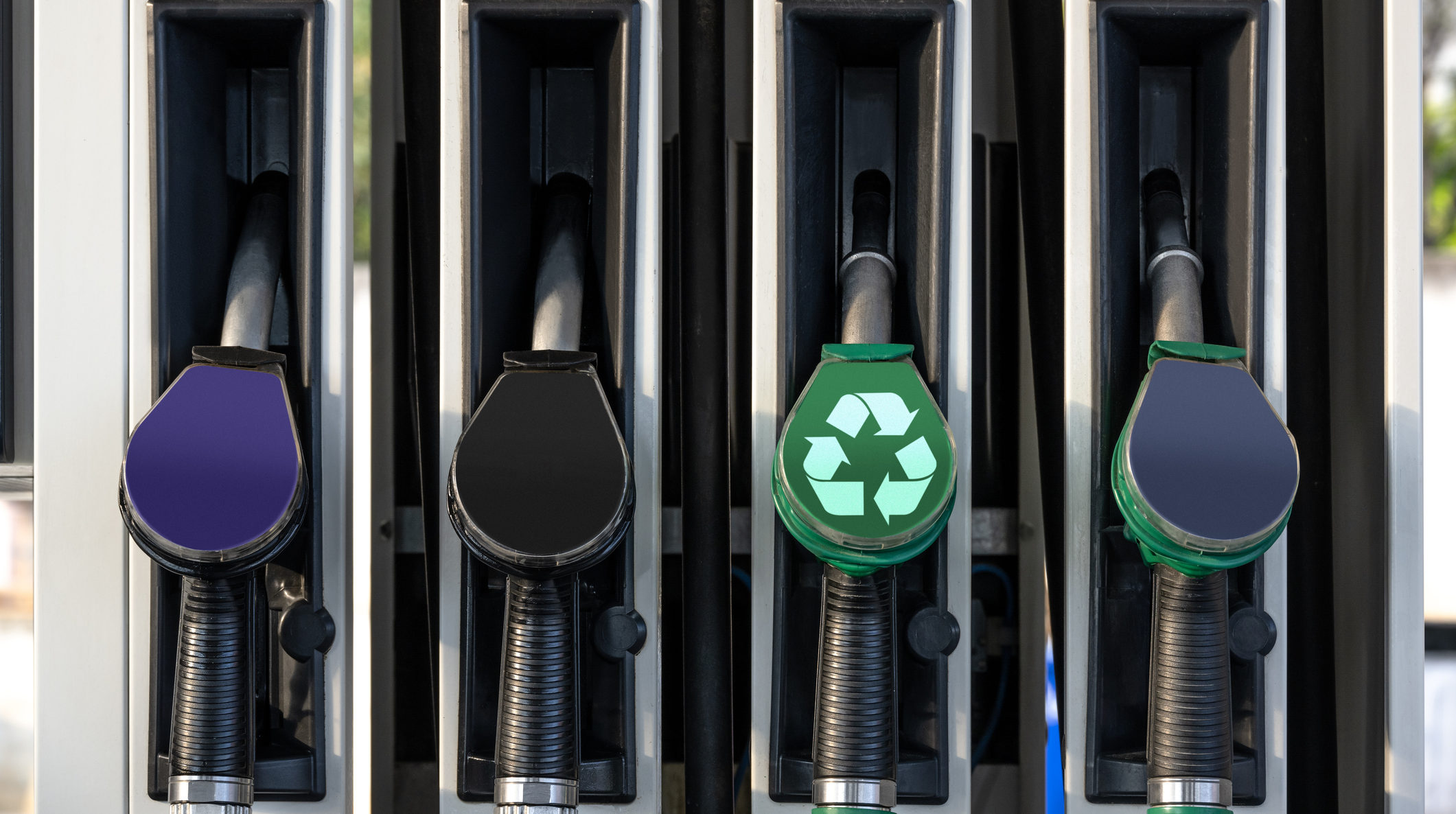It seems that every few years a new “green fuel” is hitting the market with the hope and promise of becoming the long-term successor to our traditional fossil fuels. At this point, we’ve got natural gas in different forms, ethanol, eFuel, biodiesel and renewable diesel.
While not all of these fuels are renewable, what makes them “green” is their lower emissions output when compared with the more common fuels, gasoline and diesel. Many are also derived from biomass, which can be all different kinds of organic matter, making them renewable in addition to being a low-emission option.
These alternative fuels can easily be mixed up as they share many similarities and uses, but each has very different chemical compositions that affect their performance and practicality in ICEVs. For example, biodiesel and renewable diesel sound like different names for the same alternative fuel –and to be fair, they are made from the same substances. However, because of how they are each processed, we end up with two completely different fuels.
Let’s talk about how they compare.
Biodiesel or renewable diesel?
Biodiesel and renewable diesel are both sustainable, alternative fuels that are produced from repurposed organic waste, such as animal fats and cooking oils. The ways in which they are processed, however, give them completely different chemical compositions.
Biodiesel takes three ingredients to make: the animal fats or oils, an alcohol (typically ethanol or methanol) and a catalyst. The fuel is made through a process called transesterification which separates glycerin from the fat or oil. The result is a clean-burning, fuel-grade diesel replacement that can be used in a large majority of diesel engines with no modifications.
Renewable diesel is derived from the same types of biomass as biodiesel, but goes through a similar process as petroleum diesel, making the two chemically identical. This is very attractive for fleets that worry about encountering performance issues if switching to alternative fuels.
Essentially, conventional diesel and renewable diesel are both hydrocarbons. Because of this, fleets using renewable diesel won’t have to worry about challenges regarding freezing temperature and storage.
Prices and performance
In terms of biodiesel, customers have two options – B99/100 or B20. Pure biodiesel or a blend. While B100 biodiesel is the more sustainable, ecofriendly option, there can be up to a 10 percent energy loss. B20 is a blend of biodiesel to petroleum diesel at a 20-80 ratio, significantly boosting energy efficiency but not burning as cleanly as the pure biofuel.
For renewable diesel users, no blending at all is required to achieve the same performance as conventional petroleum diesel. Fleets also wouldn’t have to modify any vehicle equipment or fueling infrastructure should they decide to switch. The transition can happen seamlessly and immediately.
In the US, both of these diesel-replacements are used primarily in California. In July 2022, at the peak of recent fuel inflation, here were the average prices in the state.


